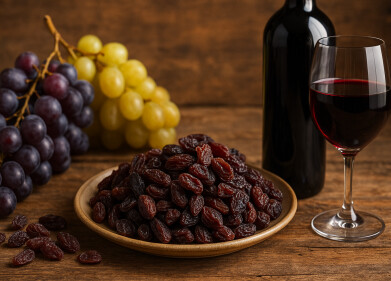-
 Ann Kennedy
Ann Kennedy
News
Multiple Region Neural Dynamics research wins 2022 Eppendorf & Science Prize
Nov 07 2022
Ann Kennedy, PhD, Assistant Professor at Northwestern University, Chicago, USA has won the 2022 Eppendorf & Science Prize for Neurobiology for her work on the neural population dynamics that generate and maintain our emotions and behavioural drives. By comparing the activation of neurons in multiple deep brain regions, she identifies differences between them that point to the role each region plays in shaping the drives behind survival behaviours such as fighting or fleeing.
“Brains are not simple input-output machines,” said Kennedy. “We respond differently to the world we encounter depending on feelings like hunger, alertness or anxiety. But how does the brain keep track of these signals and how do they alter our decisions?”
Kennedy collaborates with experimentalist researchers to characterise the activity of hypothalamic neurons implicated in the control of essential survival behaviours such as aggression, fear and reproduction. While neurons in some hypothalamic nuclei have clear responses to specific behaviours, other regions show only a weak correlation with an animal’s actions. Kennedy showed how the complex responses of individual neurons give rise at the population level to a graded signal that persists over time and escalates in intensity with an animal’s level of aggression. She also demonstrated the role of this persistent activity in helping to keep animals on their guard following exposure to a predator threat. This work helps us understand how our emotional states arise from the activity of groups of neurons and how they influence our actions.
“I am honoured to have been recognised by Eppendorf and Science and grateful to my postdoctoral mentor, David J. Anderson, PhD, for fostering this work in his lab,” added Kennedy. “This has been such an exciting project and it’s wonderful to be able to share it with a broader audience.”
“Ann Kennedy described in a coherent and accessible essay how neuronal activity in the hypothalamus modulates aggression depending on the overall situation an animal finds itself in,” explained Dr Peter Stern, Senior Editor at the journal Science and Chairman of the Prize Jury. “Her research gives us profound insights into how the intricate interaction between specific neurons in specific nuclei can fine tune animal behaviour.”
“Since 2002 Eppendorf has partnered with Science to create what the Prize has become today, one of the leading awards for young scientists in neurobiological research,” stated Eva van Pelt, Co-CEO of Eppendorf SE. “Congratulations to Ann Kennedy on her fantastic achievement in winning this year’s prize.”
Kevin Guttenplan, PhD, a postdoctoral fellow at Oregon Health & Science University, Portland, USA and Filipa Cardoso, PhD, a scientist based at Portuguese biopharmaceutical company LIMM Therapeutics SA, (Cantanhede), were selected as finalists for the prize which honours early career scientists for their ground-breaking research. Guttenplan studies the role of astrocytes in diseases and injuries of the nervous system. Cardoso worked on how adipose tissue and the nervous system communicate to regulate key metabolic responses and how this impacts immune cell function as well.
The annual Eppendorf & Science Prize for Neurobiology, which carries an award of US$ 25,000 is open to researchers who are 35 years of age or younger and have made outstanding contributions to neurobiological research based on methods of molecular and cell biology. The next deadline for applications is 15 June 2023.
More information online
Digital Edition
Lab Asia Dec 2025
December 2025
Chromatography Articles- Cutting-edge sample preparation tools help laboratories to stay ahead of the curveMass Spectrometry & Spectroscopy Articles- Unlocking the complexity of metabolomics: Pushi...
View all digital editions
Events
Jan 21 2026 Tokyo, Japan
Jan 28 2026 Tokyo, Japan
Jan 29 2026 New Delhi, India
Feb 07 2026 Boston, MA, USA
Asia Pharma Expo/Asia Lab Expo
Feb 12 2026 Dhaka, Bangladesh


















